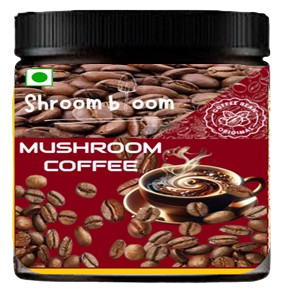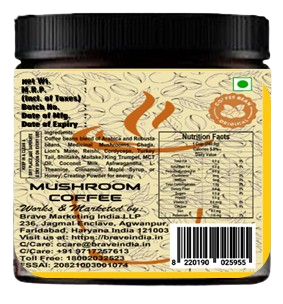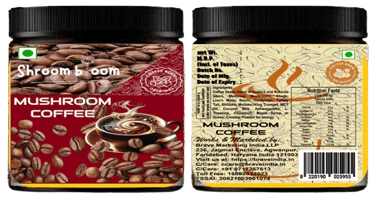











Mushroom coffee originated as a substitute for coffee during World War II in Finland, when coffee beans were scarce and people used Chaga mushrooms to make a coffee-like beverage. The concept has deep roots in the long history of using medicinal mushrooms in Asian and Chinese medicine. Modern mushroom coffee, blending coffee with extracts of various medicinal mushrooms like Lion's Mane and Reishi, became a widespread trend in the 2010s, popularized by health-focused brands and influencers.
Chaga Mushroom:
The Chaga mushroom, native to Northern Europe, was steeped and brewed to create a beverage that served as a wartime coffee substitute
History of Mushroom Coffee and Its Origins
Over the past few years, mushroom coffee has been gaining popularity as a unique and innovative beverage that combines the rich, earthy flavors of mushrooms with the bold kick of coffee. While the idea of mushrooms in our morning brew might sound strange at first, it’s important to understand the numerous health benefits and delicious taste that mushroom coffee has to offer.
Unlike traditional coffee, which is made from coffee beans, mushroom coffee is typically made by combining ground coffee with various types of medicinal mushrooms. These mushrooms not only add depth and complexity to the flavor profile of the coffee but also provide a range of health benefits that can help boost immunity, increase focus, and promote overall well-being.
Health Benefits: Mushroom coffee is known for its immune-boosting properties due to antioxidants and anti-inflammatory compounds found in mushrooms. Certain mushrooms like lion's mane and cordyceps are believed to enhance cognitive function.
Flavor Profile: The combination of coffee and mushrooms creates a unique flavor experience that is earthy and robust.
Popularity: As consumers seek natural ingredients, mushroom coffee has become a trendy beverage.


